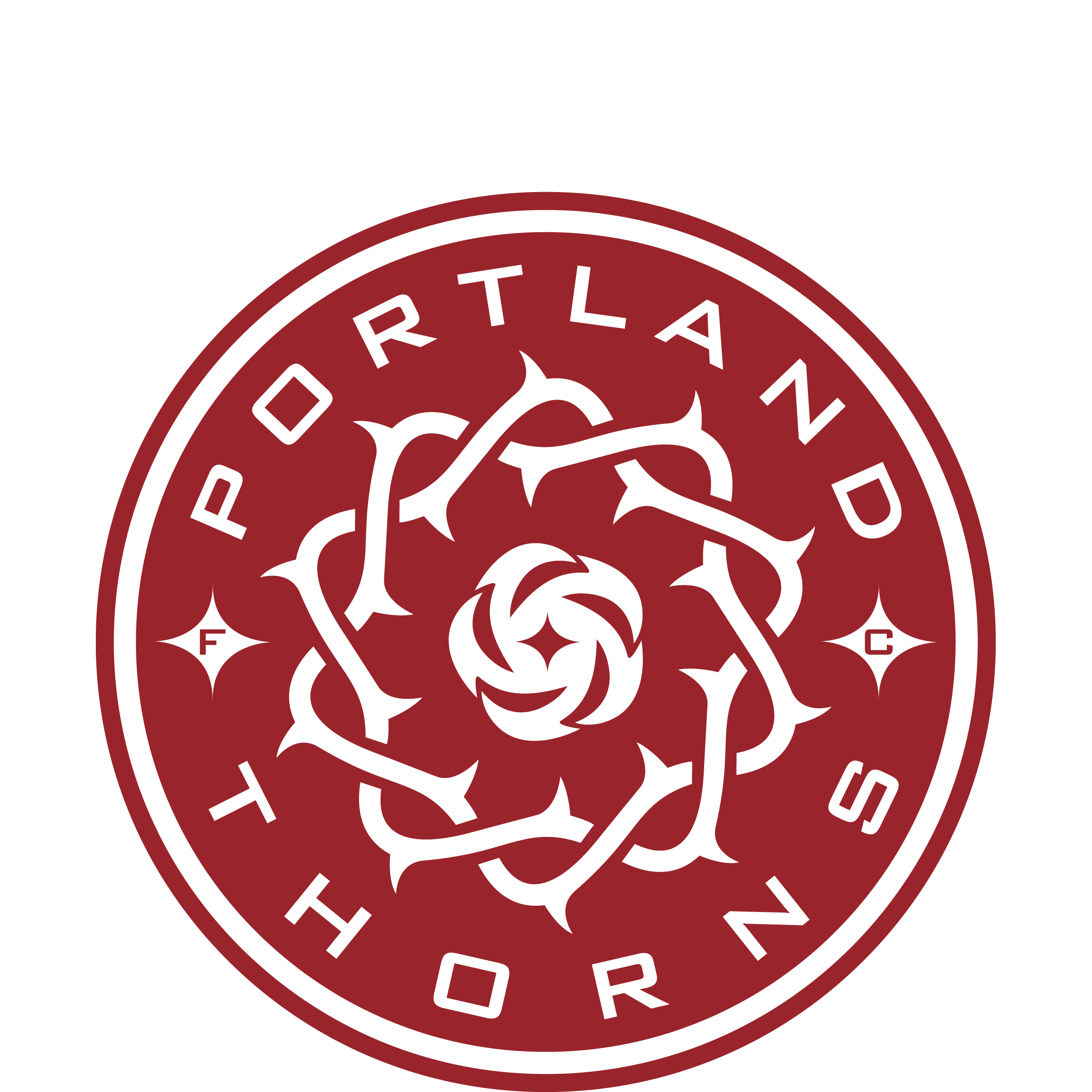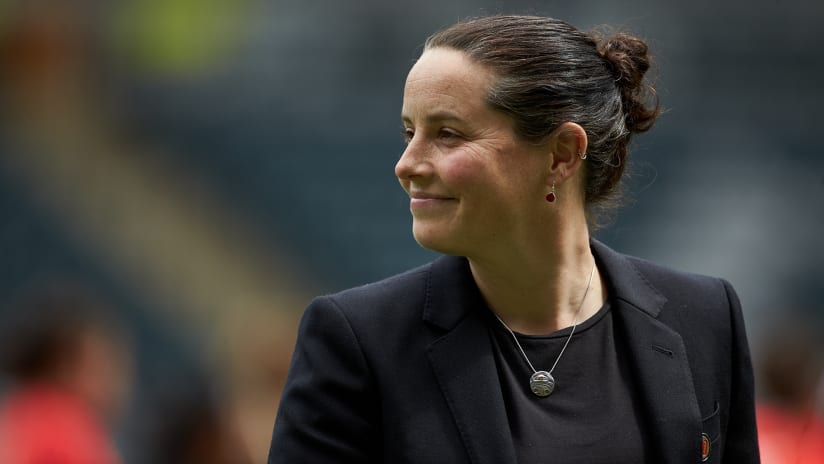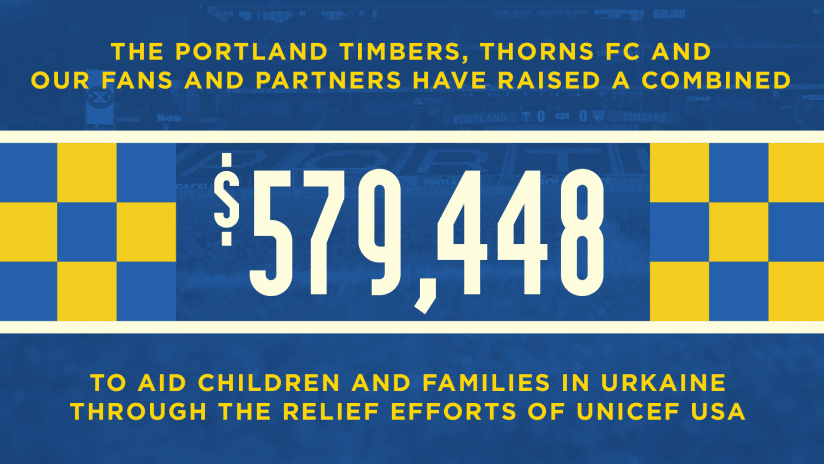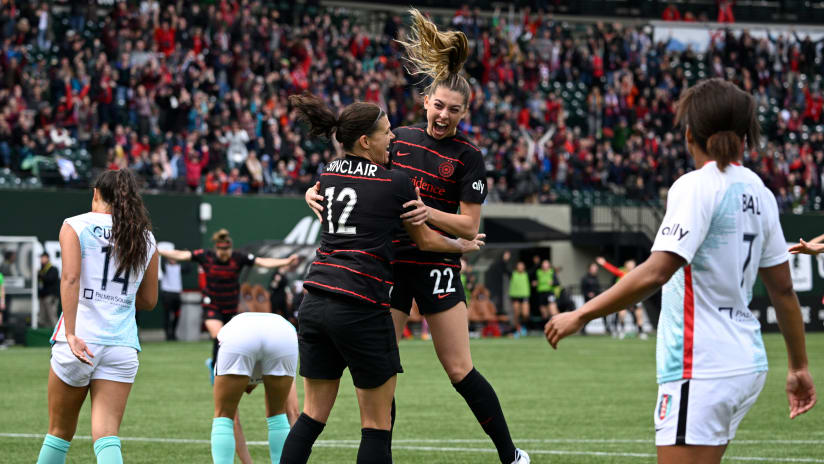Growing up, Rhian Wilkinson knew that when she sat down at the dinner table each night there would always be something new to learn.
It was the time she enjoyed a family meal, discussed her day at school as well as soccer trainings and learned from one of her biggest coaching influences, her father, Keith.
Born in Denmark and raised in England, Keith Wilkinson both played and coached rugby in Canada. When he wasn’t coaching, he taught Ernest Hemingway and D.H Lawrence to students in his English classes at John Abbott College in Quebec.
Rhian Wilkinson described her father as being “on top of everything” as a coach. Even before she was a teenager, Keith Wilkinson had his daughter close her eyes and visualize success on the way to training. After games, he’d ask her what she thought she did well and where she could make improvements to her game. While annoying and sometimes tedious, Wilkinson now appreciates the interest her father showed in the process.
It was through observing her father that Wilkinson first understood the importance of approaching each day with an eagerness to learn. She also learned the vitality of work-life balance, something she experienced the reality of as a coach’s daughter.
“I grew up with high-performance coaching and that’s one of the reasons that I didn’t want to [coach],” Wilkinson said. “I think my dad struggled his whole career with work-life balance and I think he wished he found a better way of doing that.”
In February, Keith Wilkinson passed away at the age of 73, leaving his daughter with countless memories as well as influential lessons that she continues to carry with her.
“He was a huge critic of mine,” Wilkinson said. “Up until the last months of his life he was like ‘Are you sure that’s how you want to coach?’ but I loved it and how he challenged me.”
Wilkinson’s dad played a vital role in his daughter’s personal and professional life and was one of her most important mentors in a soccer career full of them. Even today, she’s continuously grateful for the mentorship of Canada coaches John Herdman, who gave her her first coaching opportunity, and Kenneth Heiner-Møller. On the field, Wilkinson formed close relationships with several teammates, such as Diana Matheson.
Those who spent time around Wilkinson speak highly of her, describing her as always curious, honest, and a good coach and friend. Those relationships, both on and off the field, played a large role in Wilkinson’s development and growth as a player, person and coach, and have also helped shape her into who she is today: the head coach of the Portland Thorns.
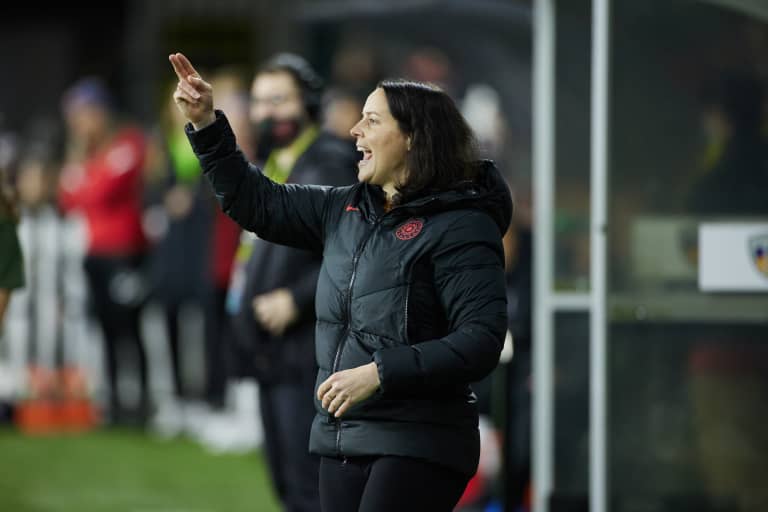
Heiner-Møller doesn’t remember much about one of the first team meals he took part in with the Canada Women's National Team. Rather, still unfamiliar with the players and staff, he recalls how out of place he felt.;
After spending his entire life in Denmark, both as a soccer player and coach, it took Heiner-Møller time to adjust to a new life in Canada. One of the first trips he took as an assistant coach of the national team was to Natal, Brazil, shortly before Canada qualified for the 2016 Rio Olympics.
Sitting around a table in a hotel meeting room, Heiner-Møller heard a nearby voice trying to get his attention: it was Wilkinson’s. She welcomed the new assistant to the team and the two discussed her time playing in Norway. While a simple conversation, it broke the ice and helped him feel welcome.
“I think [breaking the ice] is what she did at the end of her senior career,” Heiner-Møller said. “Making sure that all the upcoming players, the ones that were going to be the backbone of the Canadian national team, felt welcome early on.”
While Wilkinson didn’t see it in herself at the time, Heiner-Møller observed the traits of a budding coach every day. At trainings, she peppered coaches with questions wanting to understand the “why” behind their instructions.
“I’m not sure about this,” Wilkinson frequently told her coaches when she didn’t understand a concept or drill.
Even trivial or specific instructions, such as telling center backs to "live on the outside of a pressing center forward rather than receive them on the inside," prompted a series of questions and challenges from Wilkinson.
“The best players will say ‘I know everything there is to know about the game,’ but it’s just like a balloon; you stick a needle in it and everything explodes,” Heiner-Møller said. “But Wilkinson was making her knowledge massive before she went on to become a head coach. I think that is what made her into the coach she is today.”
Those pointed questions to Herdman and Heiner-Møller, as well as her close attention to detail each training session, laid the groundwork for the type of coach Wilkinson is becoming. Over time, she figured out that something as complex as a coaching philosophy simply comes down to what “someone knows they don’t want to be.”
Beyond daily trainings and meetings, Wilkinson benefitted from Canada’s “Elite Player, Elite Coach” program, tailor-made for both her and teammate Carmelina Moscato. Designed by Herdman from scratch with the goal of keeping women in and around the sport, Matheson described the program as a “fast-forwarded master’s program” that allowed players to coach as assistants and shadow different professional environments.
“I think Rhian went into those things not knowing for sure how far she wanted to take it, but it was definitely the beginning,” Matheson said.
Before Heiner-Møller left Canada to return to Denmark in 2020, he and Wilkinson enjoyed several one-on-one conversations about coaching and life over coffee at a local Vancouver coffee shop. Seeing her potential as someone who could one day lead a club or senior national team, Heiner-Møller implored Wilkinson to never stop feeding her curiosity.
“If you stop being curious and think you know everything there is to know about the game, then you’re about to be left out of the game,” Heiner-Møller said. “The game evolves, there is so many things happening all the time. If you lose your curiosity, you’ll lose your edge.”
That’s why Wilkinson continues to stress the importance of adaptation to both players and coaches. If teams aren’t constantly changing and adapting, she believes, the rest of the league will catch up. That idea came through in the Thorns’ fifth game of the 2022 Challenge Cup against San Diego when Wilkinson made a sudden tactical switch to experiment with a 4-3-3 formation.
While the two still exchange messages from time to time, Heiner-Møller admitted that it has been difficult to keep tabs when over nine time zones away. Still, he tries to keep in touch and recently sent Wilkinson a congratulatory text when she landed the job in Portland. And, like countless others who have gotten to know Wilkinson over the years, he still has plenty of great things to say about her today.
“If you’re looking at a coach and want to see how they are doing, you should look at who is around her or him and listen to how they are speaking about the coach,” Heiner-Møller said. “Anyone who has been working with Rhian or anyone she has had any kind of encounter with, they will speak very highly of her.”
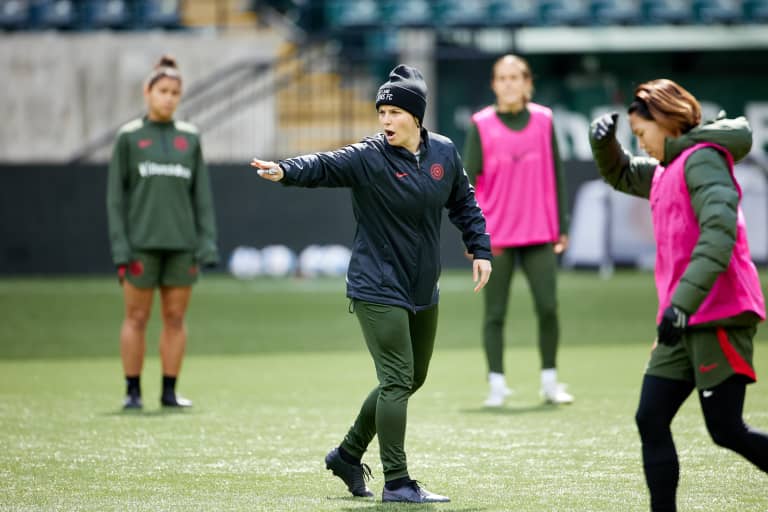
When Wilkinson received her first call-up to a Canadian women's national team camp, her father offered her one piece of sage advice.
“You should target ‘that little player’ to get a leg up."
That player was Matheson, another young player recently called up by then-coach Even Pellerud. In a way, Wilkinson’s father's advice indirectly helped spark a long-lasting relationship that is still strong today.
“We grew up together on the national team,” Matheson said. “We played together in Ottawa and then again in Norway, so we’ve been friends for a long time now.”
Matheson and Wilkinson quickly bonded over honest conversations and by watching TV shows or movies together. Both nature lovers, they took advantage of spending time outdoors together, especially while they played in Norway. Another favorite activity? Knitting.
“When we were in Norway, [Wilkinson] learned how to make Norwegian patterned mittens and they’re gorgeous,” Matheson said. “She usually makes a cute pair of baby mittens for any friends that have babies.”
While better known for her commanding presence along Canada’s back line, Matheson remembers that when Wilkinson first arrived, she planned to play as a striker, the position she grew up playing. But before long, Pellerud experimented with her at fullback.
“We joked on the Canadian national team that everyone got moved to fullback at some point,” Matheson said. “[Wilkinson] got moved back and never left. As we know, she went on to become one of the best defenders ever for Canada.”
The switch to defense, where Wilkinson was responsible for organizing and communicating with the team’s back line, helped her further develop into a leader. Matheson believed that as Wilkinson continued to grow into role, she noticed a natural void she could fill to help the team.
“There are women that came before us and forged a trail, but there’s still a huge absence of women in leadership positions,” Matheson said. “I think when Rhian was given the opportunity to get into coaching, she saw the impact she could make, and I think that was part of the reason why she did continue.”
Today, Matheson lives in Kingston, Ontario, while Wilkinson works in Portland, both separated by a three-hour time difference and over 2,700 miles. Still, that doesn’t prevent the two friends from constantly exchanging calls or sending messages and photos. They’ll talk about soccer and joke with one another, but also have serious conversations. Recently, Matheson encouraged Wilkinson to take more breaks and relax more.
When Wilkinson was applying for several club head coaching positions, she frequently confided in Matheson. While she didn’t go into coaching, Matheson remembers discussing how men are hired on potential and women are hired on performance.
“Rhian had a number of interviews with top clubs where she was told she was the favorite and she crushed the interviews and presentations, but it didn’t come through for various reasons,” Matheson said. “With Portland it was the same situation where she presented herself well and was a top candidate, but I think she didn’t get her hopes up given how a few other chances had panned out.”
Months after those conversations, everything has fallen into place for Wilkinson. As Matheson thinks about where her best friend is now, she can’t help but reflect on those early years. In 2003, she first met a striker who was instructed to “target the small player.” Now, nearly two decades later, she’s in Portland living out her dreams; and Matheson was with her every step of the way.
“[Portland] was a dream job for her getting to go to the greatest women's club in the world with the best fans,” Matheson said. “They’re lucky to have her. I couldn’t name another coach of Rhian’s age that they would be happier with.”
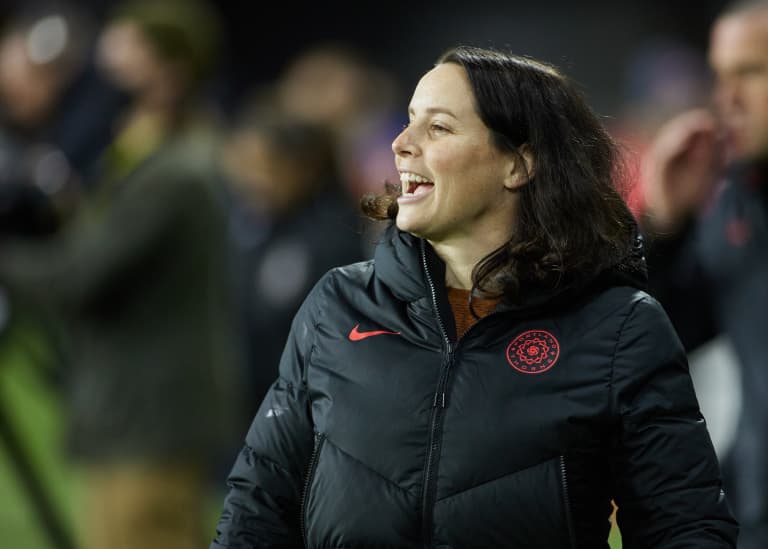
On the bottom left corner of a whiteboard in Wilkinson’s office is a simple dry erase drawing of two goals, stick figures playing soccer and a giant rose.
Drawn by former Thorns’ coach Mark Parsons’ daughter, Edie, before she left for Europe, the colorful image adds personality to an office still full of mostly empty walls. Months later, even after Wilkinson has made the space her own, the drawing remains.
“It’s as simple sometimes as putting the ball in the back of the net,” Wilkinson said. “That’s what [Mark Parsons] said, and I left the picture up there because it’s a reminder to not overcomplicate things.”
Parsons played a role in Wilkinson’s hiring, a process she described as “long [and] extensive.” However, it was his involvement and openness after her hiring that proved invaluable.
Even as he actively coached the Thorns, Parsons didn’t have a problem allowing Wilkinson around. Despite packing up his house and coaching both the Thorns and Netherlands Women's National Team full time, Parsons invited her to sit in on staff meetings and answered questions between appointments.
Careful not to be a distraction, Wilkinson tried her best to stay out of players’ way as they prepared for the NWSL’s final stretch. Around the club every day, she found herself picking up more insights on players and learned more about what they need to perform at their best.
Five months later that team is now Wilkinson’s, and the early insight has proven to be a valuable jumping-off point as she embarks on her first full season in Portland. With international coaching experience under her belt, Wilkinson now gets to try her hand at the club level.
From Parsons and Matheson to Heiner-Møller and her own father, there have been countless people along Wilkinson’s journey that have played a prominent role in her career. But just as they’ve impacted her, those around her think highly of Wilkinson and believe she has found a perfect fit in the Rose City.
“Her being in Portland, I think she finds herself fortunate,” Heiner-Møller said, “but I think Portland should find itself very fortunate that she decided to be their head coach.”
